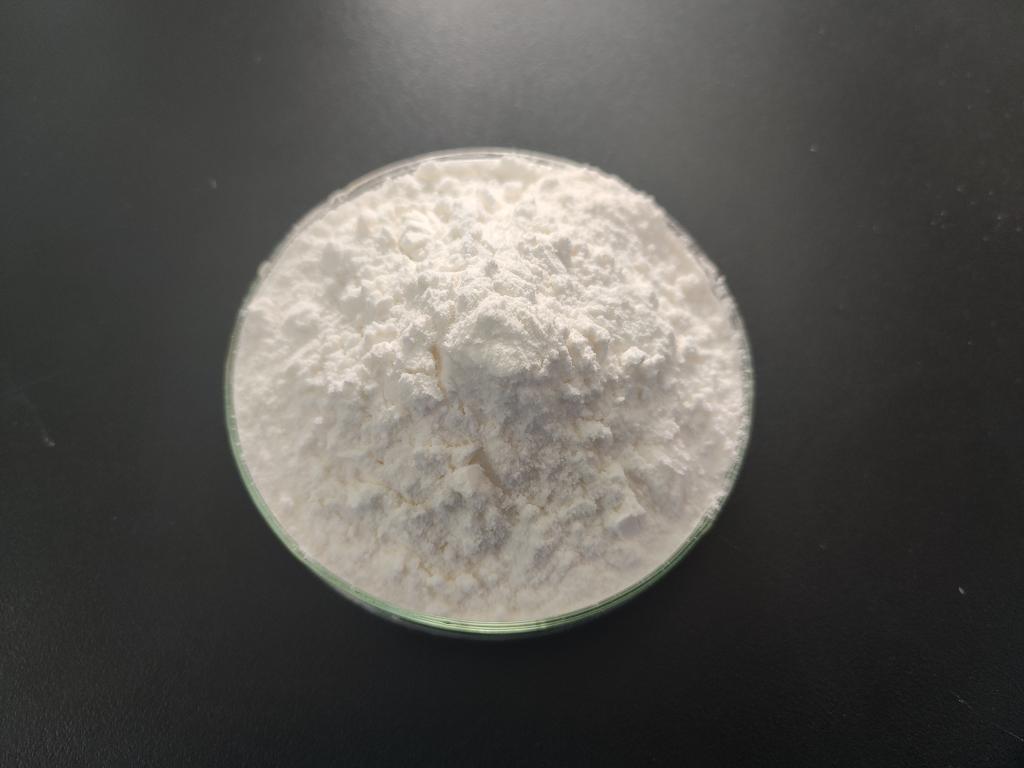Tel:+8618231198596

News
 CONTACT
CONTACT
 CONTACT
CONTACT
- Linkman:Linda Yao
- Tel: +8618231198596
- Email:linda.yao@dcpharma.cn
- Linkman:CHARLES.WANG
- Department:Overseas
- Tel: 0086 0311-85537378 0086 0311-85539701
News
ε-Polylysine Hydrochloride in the Context of Plant-Based Meat and Alternative Proteins.
TIME:2023-09-14
Understanding ε-Polylysine Hydrochloride (ε-PL)
ε-Polylysine Hydrochloride, commonly referred to as ε-PL, is a natural biopolymer composed of multiple lysine amino acid units linked together by peptide bonds. It is produced through fermentation by certain strains of bacteria, with Streptomyces albulus being a notable source. ε-PL has gained recognition for its antimicrobial properties and has been used as a food preservative due to its ability to inhibit the growth of spoilage and pathogenic microorganisms. Importantly, ε-PL has received approval for safe use in the food industry by regulatory agencies.
Key characteristics of ε-Polylysine Hydrochloride include:
Natural Origin: ε-PL is derived from bacterial fermentation, making it a naturally occurring ingredient that aligns with the preferences of consumers seeking plant-based and natural products.
Antimicrobial Activity: ε-PL exhibits strong antimicrobial activity against a wide range of microorganisms, including bacteria, fungi, and some viruses, making it effective in preserving the freshness of food.
Biodegradability: One of ε-PL's noteworthy features is its biodegradability. It naturally breaks down into harmless compounds over time, contributing to sustainability in food production.
Low Toxicity: ε-PL has low toxicity to humans, animals, and beneficial non-target organisms, further emphasizing its safety profile for food applications.
Plant-Based Meat and Alternative Proteins: A Growing Industry
The plant-based meat and alternative proteins industry has experienced exponential growth in recent years, driven by several key factors:
Environmental Concerns: Increasing awareness of the environmental impact of traditional livestock farming, including greenhouse gas emissions and deforestation, has led consumers to seek more sustainable protein sources.
Ethical Considerations: Concerns about animal welfare and the treatment of animals in industrial farming have prompted a shift towards cruelty-free protein options.
Health and Wellness: Consumers are becoming more health-conscious and are looking for protein alternatives that offer similar nutritional benefits to conventional meat without the associated health risks.
Culinary Innovation: Advances in food science and culinary techniques have enabled the development of plant-based meats that closely mimic the taste, texture, and appearance of animal-derived products.
ε-Polylysine Hydrochloride's Role in Plant-Based Meat
ε-PL has gained recognition within the plant-based meat industry for several key applications:
Shelf-Life Extension: As a natural antimicrobial agent, ε-PL can extend the shelf life of plant-based meat products by inhibiting the growth of spoilage and pathogenic microorganisms. This is particularly important for ensuring product freshness and reducing food waste.
Texture Enhancement: Achieving the desired texture in plant-based meat products is a significant challenge. ε-PL can be used to modify and improve the texture, resulting in a more meat-like mouthfeel and appearance.
Flavor Enhancement: ε-PL has the potential to enhance the umami flavor in plant-based meats, making them more appealing to consumers who seek a meaty taste experience.
Preservation of Quality: During processing and storage, plant-based meat products may undergo changes in color, flavor, and texture. ε-PL can help maintain the quality and sensory attributes of these products over time.
Clean Labeling: As consumers increasingly demand clean label products with minimal artificial additives, ε-PL's natural origin and safety profile contribute to its appeal as an ingredient in plant-based meats.
Challenges and Considerations
While ε-Polylysine Hydrochloride holds promise in the development of plant-based meat and alternative proteins, there are challenges and considerations to address:
Regulatory Approval: Ensuring that ε-PL complies with regulatory guidelines and safety standards for use in plant-based meat products is essential to its widespread adoption.
Consumer Acceptance: While ε-PL is generally recognized as safe, consumers may still have questions or concerns about its presence in plant-based foods. Transparent labeling and education can help address these concerns.
Application Expertise: Food scientists and culinary experts must determine the optimal dosage and application methods of ε-PL to achieve the desired sensory attributes and shelf life extension in plant-based meats.
Sensory Evaluation: Consumer preferences for the taste, texture, and overall sensory experience of plant-based meats can vary widely. Extensive sensory evaluation is necessary to fine-tune formulations.
Future Outlook
As the plant-based meat and alternative proteins industry continues to expand, ε-Polylysine Hydrochloride's role as a functional ingredient is likely to grow. Its contributions to shelf-life extension, texture improvement, and flavor enhancement in plant-based meat products align with the industry's goals of offering high-quality, sustainable, and appealing protein alternatives. To unlock its full potential, collaboration between food scientists, culinary experts, and regulatory agencies is essential to ensure that ε-PL contributes to the development of innovative and satisfying plant-based meat options that meet the demands of today's consumers.
- Tel:+8618231198596
- Whatsapp:18231198596
- Chat With Skype







